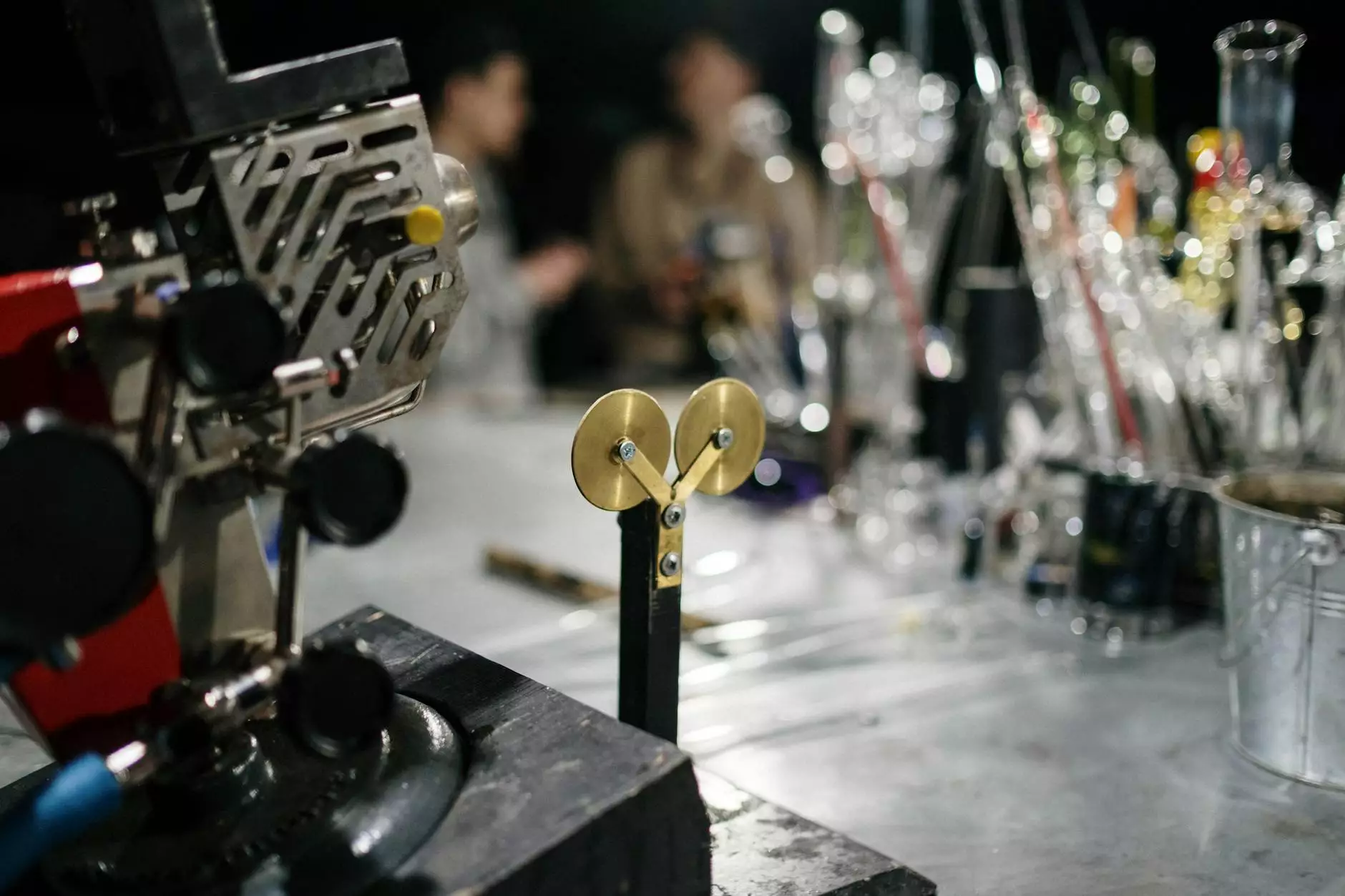Understanding the Importance of Precision Mold Parts in Metal Fabrication

In the competitive world of manufacturing, the production of quality components is crucial for success. Among these components, precision mold parts play an essential role in driving efficiency and precision throughout various industries. In this detailed article, we will explore what precision mold parts are, their significance in metal fabrication, and how they contribute to the overall quality of manufactured products.
What Are Precision Mold Parts?
Precision mold parts refer to components used in the manufacturing of molds, which allows for the shaping of materials into specific forms. These parts must be crafted with high accuracy, ensuring that the final products meet stringent specifications. Common applications include:
- Injection Molding: Creating plastic parts by injecting molten material into a mold.
- Die Casting: Pouring molten metal into a mold, allowing it to take shape as it cools.
- Blow Molding: Producing hollow plastic parts by inflating hot plastic in a mold.
- Compression Molding: Pressing preheated materials into a mold to create solid parts.
The Manufacturing Process of Precision Mold Parts
The manufacturing of precision mold parts involves several key processes that ensure high standards of quality and accuracy. The main steps include:
1. Designing the Mold
A detailed design process utilizing CAD (Computer-Aided Design) software is crucial. Engineers create precise blueprints that detail every aspect of the mold, which include dimensions, contours, and features that are essential for functioning effectively.
2. Material Selection
Choosing the right material for mold parts is vital. Common materials include:
- Steel - for its durability and strength.
- Aluminum - for lightweight applications and quicker machining.
- Bronze - known for its resistance to corrosion and wear.
3. Machining
Machining processes such as CNC (Computer Numeric Control) machining, EDM (Electrical Discharge Machining), and milling are employed to create highly precise mold components. This step is critical in achieving tight tolerances that ensure the interchangeable nature of mold parts.
4. Quality Assurance
After machining, the precision mold parts undergo rigorous quality checks. Techniques such as coordinate measuring machine (CMM) inspection and 3D scanning ensure that every component meets the required specifications before moving forward in the production process.
Benefits of Using Precision Mold Parts
Investing in high-quality precision mold parts can yield numerous advantages for manufacturing businesses. Here are some key benefits:
1. Enhanced Product Quality
Precision molds ensure that each product has consistent dimensions and features. This level of accuracy leads to a higher-quality end product, reducing the likelihood of defects and rework.
2. Increased Efficiency
With precision mold parts, the manufacturing process becomes more efficient. Consistent manufacturing leads to less downtime, as molds can produce parts faster and with fewer errors.
3. Cost-Effectiveness
Despite the initial investment required for precision molds, their long-term benefits often outweigh costs. Reduced waste, lower rejection rates, and fewer quality checks can ultimately save money.
4. Versatility
Precision mold parts can be tailored for a wide range of applications across different industries including automotive, consumer electronics, and medical devices, making them more versatile than traditional mold parts.
Applications of Precision Mold Parts in Different Industries
Precision mold parts find applications across a myriad of industries, enhancing production processes and ensuring products meet high standards. Below are some notable applications:
1. Automotive Industry
The automotive sector relies heavily on precision molds for producing components such as dashboards, bumpers, and internal panels. The intricate designs and stringent regulations in this industry make precision essential.
2. Electronics Manufacturing
Electronics devices require delicate and precise components. Precision mold parts are used to create casing, connectors, and intricate features found in smartphones, laptops, and other gadgets.
3. Medical Equipment
In the medical field, precision molds are critical for creating components for surgical instruments, implants, and diagnostic devices, where human safety is paramount.
4. Consumer Goods
From kitchen appliances to safety equipment, precision molded parts are utilized in producing high-quality consumer goods that require consistent precision to meet customer expectations.
Choosing the Right Manufacturer for Precision Mold Parts
When searching for a reliable provider of precision mold parts, it is crucial to assess various factors to ensure you select the best manufacturer. Here are some tips to guide your selection:
1. Experience and Expertise
Choose a manufacturer with a proven track record in producing precision mold parts. Look for testimonials, case studies, and industry experience to gauge their capability.
2. Technology and Equipment
Modern manufacturing relies on advanced technology. Ensure the manufacturer employs state-of-the-art machinery and techniques like CNC machining and 3D printing for optimal precision.
3. Quality Assurance Processes
Inquire about the quality assurance processes in place. Manufacturers should have rigorous testing protocols to ensure every part meets industry standards.
4. Customer Support
A responsive customer support team is vital. Ensure they can assist throughout the production process, address inquiries promptly, and provide updates on your order.
The Future of Precision Mold Parts
As technology continues to advance, the landscape of precision mold parts is evolving. Innovations such as additive manufacturing, better materials, and smarter design processes are paving the way for more efficient production methods.
1. Additive Manufacturing
3D printing technology has begun to influence the production of mold parts, allowing for quicker prototyping, complex geometries, and less waste in material.
2. Advanced Materials
Research into new composite materials promises improved strength, weight, and thermal resistance, leading to even superior precision mold parts across industries.
3. Smart Manufacturing
Integration of AI and IoT in manufacturing practices allows for real-time monitoring and adjustments, enhancing the precision of mold production and significantly reducing errors.
Conclusion
Precision mold parts are an integral component of the manufacturing landscape. Their ability to produce high-quality, consistent components efficiently makes them vital in various industries. As technology progresses, so too will the capabilities and applications of precision mold parts, making them even more invaluable in the production process.
For businesses looking to enhance their manufacturing capabilities, investing in high-quality precision mold parts from a reputable source such as DeepMould.net can provide significant competitive advantages. Embrace the precision, embrace the future.









